Results 1,271 to 1,280 of 1857
Thread: Âu
-
03-25-2021, 11:06 PM #1271
'We may end up shooting ourselves in the foot'
'EU won't be the fall guys' when it comes to vaccines, says France
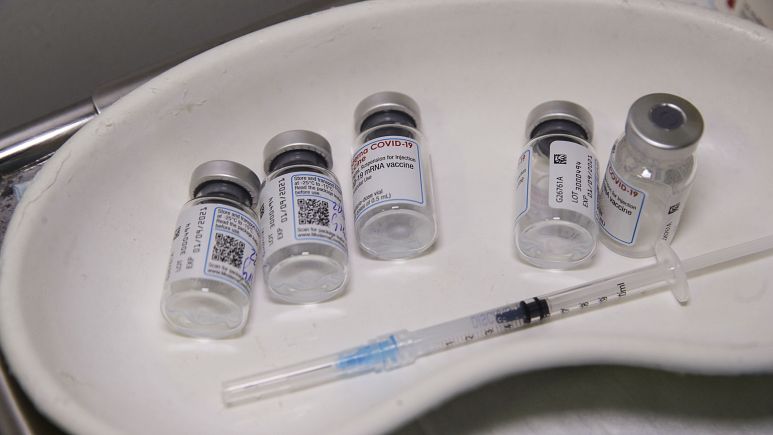
Vials of the AstraZeneca vaccine are pictured at the Fondazione Martino Zanchi nursing home, in Alzano Lombardo, Italy. March 22, 2021. - Copyright Luca Bruno/Copyright 2021 The Associated Press. All rights reserved.
AstraZeneca's "unfulfilled" commitments of vaccines to the EU are "totally unacceptable", the French government spokesman has said.
He made reference to reports that an EU inspection had found a stockpile of 29 million doses of the Oxford/AstraZeneca jab in Italy.
It comes amid reports the EU is irked with Anglo-Swedish pharmaceuticals company for offering contradictory promises to Brussels and the UK in their contracts that were signed last year.
Gabriel Attal said at a weekly press conference that his country's position was very clear and that "the EU will not be the fall guys" when it comes to vaccines.
Earlier in the day, the European Union said it was moving toward stricter export controls to ensure that there are more COVID-19 shot supplies for the bloc, which should boost its flagging vaccine drive at a time of another surge of the coronavirus pandemic on the continent.
The EU's executive body said Wednesday on the eve of a summit of the 27 leaders that it has a plan ready to guarantee that more vaccines produced in the bloc are available for its own citizens before they can be shipped for exports.
"The EU still faces a very serious epidemiological situation and continues to export significantly to countries whose epidemiological situation is less serious than ours, or whose vaccination roll out is more advanced than ours," said European Commission vice-President Valdis Dombrovskis.
EU nations have been specifically stung by the United Kingdom, which has received around 10 million doses from EU plants while they say nothing came back from Britain.
'We may end up shooting ourselves in the foot'
But Bernd Lange, a German MEP who chairs the trade committee of the European Parliament, warned about the unintended effects of the instrument, which could leave the EU with fewer doses.
"We may end up shooting ourselves in the foot because the supply chains for vaccine production might be affected and interrupted," Lange wrote on Twitter.
"Such an escalation is also fatal for global efforts. Because the poorer countries will suffer the most in this fight for vaccines. In the end, we will mostly have losers and only one winner: the virus itself."
Situation in France requires stronger measures
At the press conference, Attal also hammered home the severity of the situation concerning the virus in France, saying: "I spoke to you a fortnight ago about stormy weather ahead; we are there."
He said saying the officials would consider adding three further departments, Aube, Nièvre and Rhone, to the list of 16 currently under reinforced measures to combat the spread of COVID.
"The epidemic situation is bad and we need to act, to go further, where the virus is circulating the most ... where the hospitals are most strained".
/* src.: https://www.euronews.com/2021/03/24/...es-says-france

 Puck Futin
Puck Futin
-
03-26-2021, 11:07 PM #1272
Norway delays resuming AstraZeneca vaccines pending "further investigations" Access to the comments Comments
By Matthew Holroyd • Updated: 26/03/2021 - 17:56
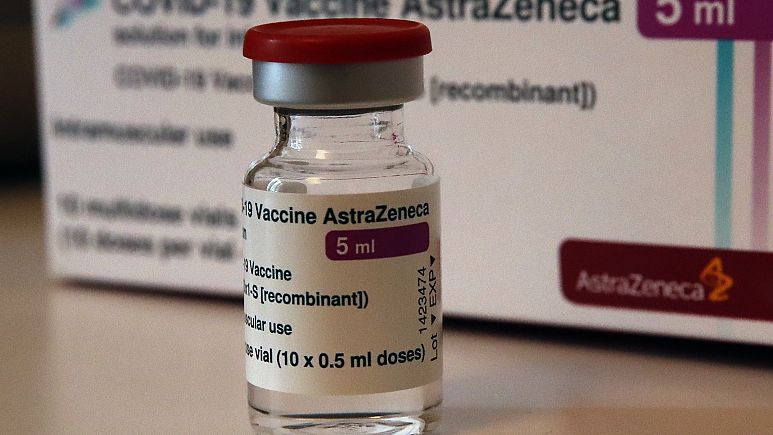
Norwegian Institute of Public Health said thay had extended the pause because "further investigations are necessary". - Copyright AP Photo/Christophe Ena, File
Norway has extended a suspension of the AstraZeneca vaccine for three weeks.
The Norwegian Institute of Public Health said the temporary pause would continue until April 15 because "further investigations are necessary".
Earlier this month, Norway and several other European countries halted the rollout of AstraZeneca vaccines following reports of blood clotting.
Last week, the European Medicines Agency (EMA) reaffirmed that the jab was "safe and effective", prompting several nations to resume vaccination programmes.
The World Health Organization (WHO) has also stated that the benefits of AstraZeneca's vaccine outweigh the risk of side effects.
But in a statement on Friday, Norway confirmed that the suspension would remain in place until more information was available.
"It is a difficult but correct decision to extend the pause for the AstraZeneca vaccine," said Geir Bukholm, Director of Infection Control and Environmental Health at the Institute.
"We believe it is necessary to carry out more investigations into these cases so we can give the best possible advice about vaccination to the population in Norway."
Norway initially suspended AstraZeneca vaccines on March 11, and say they have received reports of four deaths in the country linked to thrombosis.
"All patients in Norway and Europe with the severe clinical picture of blood clots, haemorrhages and low platelet counts developed symptoms within a period of about two weeks after vaccination," the institute said.
On Thursday, Denmark also extended its suspension of AstraZeneca vaccines for three weeks, noting that the EMA said severe cases of rare side effects cannot be excluded.
Norwegian authorities have acknowledged that delaying the resumption has a "direct effect" on easing anti-virus restrictions.
"The AstraZeneca vaccine is a good vaccine that protects risk groups against COVID-19," said Bukholm.
"However, it is important to weigh the benefits of vaccination against the risk of rare but serious side effects from continued use of the AstraZeneca vaccine. We need more time to find out more about this balance."
The Norwegian Institute of Public Health says they are working with clinical experts both in Norway and abroad to identify whether there is any connection between the vaccine and blood clotting and will inform the EMA of any findings.
Around 200,000 doses of AstraZeneca in Norway remain in storage, while the immunisation programme is delayed by up to two weeks, they added.
Sweden, Iceland, and Finland announced this week that they will resume the use of AstraZeneca's vaccine, but reserve it for the elderly population for the time being.
/* src.: https://www.euronews.com/2021/03/26/...investigations

 Puck Futin
Puck Futin
-
03-29-2021, 08:26 PM #1273
Người thua cuộc.
Europe's most vulnerable have fallen through gaps in healthcare systems during the COVID pandemic
By Emma Beswick & Marta Rodriguez Martinez • Updated: 29/03/2021 - 11:36
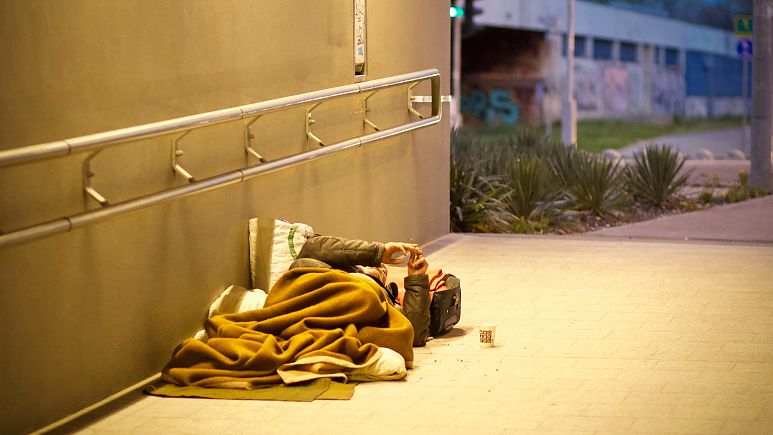
A man lies on the street smoking a cigarette in Budapest, Hungary. - Copyright Photo by Mihály Köles on Unsplash
The true cost of the pandemic
Lower income people across the world have, in many instances, suffered disproportionately from the pandemic in general for a number of reasons including the fact that their jobs are more likely to expose them to the virus, and their savings are generally lower.
In the first three months of the pandemic in Europe (March 1 to June 30, 2020), around 170,000 people who were not previously beneficiaries of the Spanish Red Cross requested help from the organisation.
This trend could be seen across Europe, according to Graciela Malgesini, EU and Advocacy Officer at the European Anti Poverty Network (EAPN).
There was "a big wave of people asking for help for the first time" when the pandemic broke out, she said, but this was only "the tip of the iceberg because, of course, many people were unable to act at first.
"They were just wondering what they could do and they said the problem was that everything was closed, the information was not there," she added.
The profiles that were most likely to experience poverty were the self-employed, the elderly, disabled people, students, women in various positions of precarity or with dependents, as well as migrants and Roma, according to Malgesini.
While financial aid was made available in many nations, schemes required beneficiaries to understand how the social security system of a country works and be able to read, write and in some cases speak the language, which often excluded some of the most vulnerable.
What's more, benefits were in many cases based on revenue from previous years, seeing people who had fallen into poverty because of the pandemic left behind.
Front line workers that aren't health workers, such as cleaners, were severely impacted if they caught COVID in some countries, like Italy and Spain, as they couldn't claim the disease as a work-related accident on their health insurance, the expert said.
"People really found themselves in difficult situations," both those who were already struggling financially and people experiencing poverty for the first time, Noellie Denomerenge, who is a caseworker for the Walloon Anti-Poverty Network in Belgium (Réseau Wallon de Lutte contre la Pauvreté).
"Many people found themselves with a real drop in revenue, often the most vulnerable, and even a small reduction to money coming in can make a difference. People put healthcare on the backburner."
"We quickly realised the reality of the situation on the ground when lockdown was first introduced," she said. "People weren't working but medical fees were still there, still had to be paid, and hospitals were pretty much closed to anyone who didn't have COVID."
Among the cases that struck Denomerenge the most was a woman who had a disease, which was diagnosed before the pandemic, that was attacking her flesh.
Her condition required being treated by specialist medical staff "very regularly" but she was not considered a priority to receive emergency healthcare when COVID broke out, the caseworker explained.
"She no longer had fingers, just stumps, her gums were receding ... she had no idea at all how to go and get treated."
"She was in a lot of pain, she couldn't leave her house because she was in so much pain. Because her treatment couldn't be followed up properly her situation is now a lot more complicated."
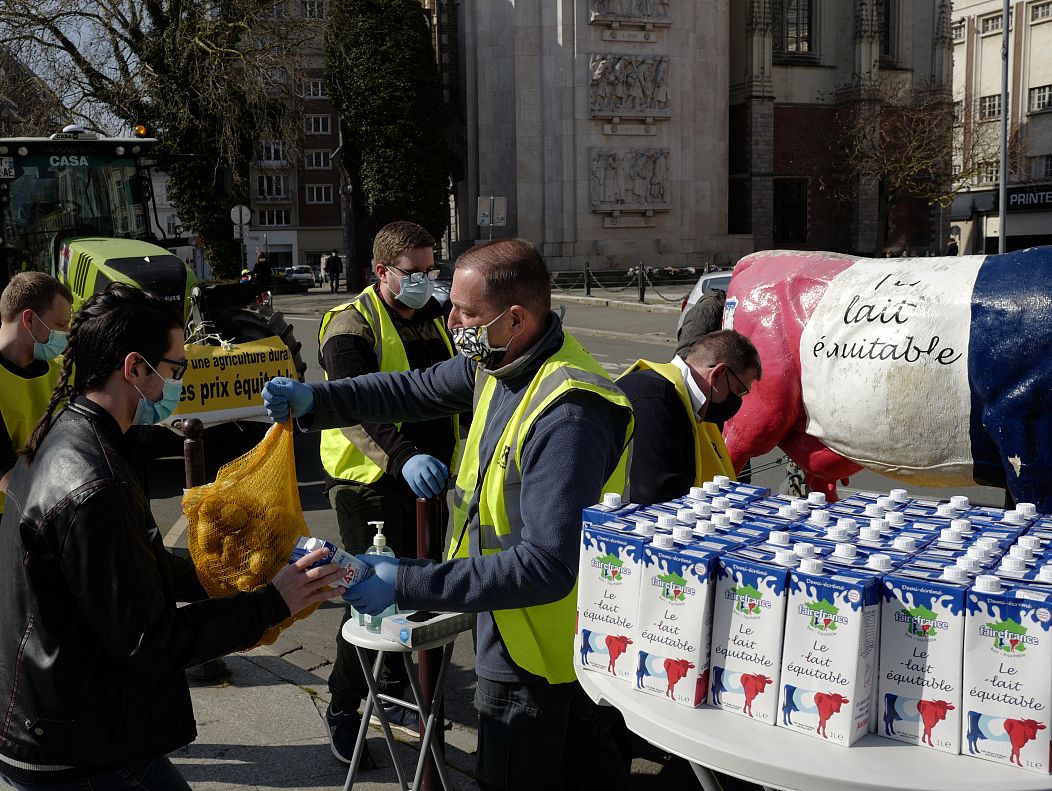
Farmers distribute free potatoes and milk to students affected by poverty in Lille, northern France Wednesday, March 24, 2021.AP Photo/Michel Spingler
Denomerenge said this was also the case for people who had leg injuries and many of the elderly who could not function without assistance or regular medical appointments and saw them taken away during lockdown because their conditions weren't considered urgent enough.
Students were also heavily impacted and she said her colleagues in France reported the same issue. Students in further education who had left their family homes weren't going out to get medicine to treat any illnesses, which created a "snowball effect" leaving them unable to study in some cases.
"We have a state system here in Belgium, funded by mandatory health insurance, which works quite well for some people, but only if you are registered in the system," the caseworker said.
"Undocumented migrants, people who are homeless, will not always go to hospital even for emergency treatment, or they can't — this option wasn't available to them for months last year. And sometimes life means that they can't go back the next day for a checkup or to collect medication."
Poverty is a health issue too
Poverty was an issue in the EU even before the COVID crisis, with one in five people at risk of poverty and social exclusion but the pandemic has only increased social inequalities, according to a report Malgesini penned for the EAPN.
Food insecurity and an increasing digital divide are just two of the issues that tethered poverty to health care before the pandemic began and have been compounded since COVID broke out in Europe.
"On one hand, we see the president of the European Commission rightly speaking about the need to digitalise Europe, but, on the other hand, we see the reality of the people who are absolutely challenged by the digital divide: not just the poor and elderly, but also young people who can't use the technology or don't have access to it," said Malgesini.
She added that the pandemic had required companies and individuals to become more tech-savvy, but in digitalising health services like GP appointments, those who couldn't access technology or didn't know how to use, like the elderly, or homeless, were further isolated or left behind.
Food insecurity is not just a social problem, but also a health problem, according to Malgesini.
"If you are poor and you are not consuming the right amount and quality of food, your body becomes weaker and you are more prone to illness," she said.
During COVID times, this was particularly an issue for those who were already isolated, self-isolating because of infection, disabled, and experiencing poverty.
"This was a huge problem almost everywhere on the continent," according to the European Anti Poverty Network expert.
Italy saw a surge of 50% in people using food banks during the first six months of 2020, compared to the same period in 2019.
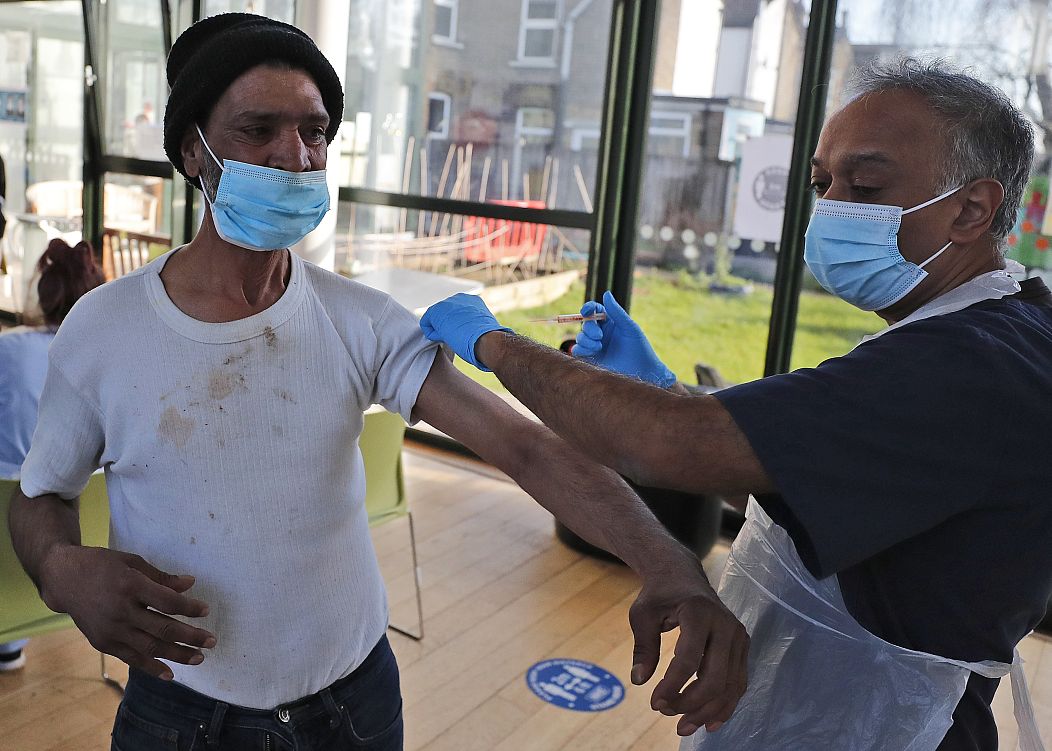
A doctor gives a dose of a COVID vaccine to a homeless person at the Welcome Centre in Ilford, east London, Friday, Feb. 5, 2021.AP Photo/Frank Augstein
Encarna Moreno from Mula in Murcia, southeastern Spain, has a 17-year-old daughter, Noelia, with spina bifida — a birth defect that occurs when the spine and spinal cord don't form properly.
Since the COVID lockdown began in March of last year, Noelia has had to stop doing sports, has not had medical appointments for check-ups and does her rehabilitation exercises via video call, which is not comparable to doing them in person, her mother told Euronews.
“The impact of the coronavirus on the economy and job losses is very serious, but it is also serious for people with physical problems, and this has not been talked about,” Encarna said.
“She has been unable to receive the treatment she needs for a full year now.”
Encarna doesn't know for sure if this has affected her daughter's health given she hasn't had a checkup for over a year and a half, but she suspects it has had a severe impact as she said her back pain is worse.
Noelia used to have a checkup every six months at the paraplegic hospital in Toledo, Spain's most specialised hospital for the complete treatment of spinal cord injuries.
There she was given a full examination that included a bladder and kidney check-up, which are important for people with her condition, Encarna explained.
Due to the coronavirus pandemic, her last visit to the facility was in January 2020, with her check-ups being repeatedly pushed back.
Swimming used to really help Noelia with her condition, but pools were closed until recently.
"Sports on dry land are too strenuous, she can't do weights, for example, so swimming is the best fit. The only sport that suits her," Encarna said of her daughter.
"They opened bars, entertainment venues but the pools remained closed. It seems like a pretty safe environment to me — you go in one at a time and there is chlorine everywhere."
Encarna hopes that the situation concerning her daughter's health care will return to normal, with the local pool open and a medical appointment booked in this summer, but she says the difficult times they faced during the pandemic and how little it has been spoken about will never leave her.
Positive effects of COVID
While we can never bring back the millions who have lost their lives during the pandemic, it has sparked some positive changes for the vulnerable trying to access health care, said Malgesini.
This includes drawing attention to gaps in services. "A certain awareness has happened, as well as some positive reflection on the shortcomings and the impact of the pandemic on disadvantaged groups has been made by governments with the help of the EU," she explained.
Health systems were analysed in connection with the bloc during the second part of 2020, which found issues with budgets in terms of insufficient investment in health care, additional strain on health systems, workforce pay, and shortages of health workers or skills deficits.
"Many countries showed limited coordination and integration of care and that social and health care are disconnected. This is something that needs to be bridged," Malgesini said.
Despite this, the COVID crisis has as a general rule across Europe caused an increase in social vulnerability, a drop in well-being, a rise in the feeling of loneliness, and mental health challenges, she added.
"The idea that no one is safe until everyone is safe is a very powerful one we should all remember," the expert added.
"Poverty is not only unjust, it's also unethical and it is making societies weak towards epidemic shocks and crisis," which the COVID pandemic has shown.
/* src.: https://www.euronews.com/2021/03/29/...ng-the-covid-p

 Puck Futin
Puck Futin
-
03-29-2021, 08:29 PM #1274
"Di" trùng
Thousands of Germans fly to Mallorca amid rising infection cases
By Louise Miner with AFP, EBU • Updated: 28/03/2021 - 21:18
Germans are unable to travel around Germany but they can get on a flight to the Spanish island of Mallorca.
Thousands of German holidaymakers flew to Palma at the weekend for their Easter break. Sixty planes landed on Saturday as well as 70 from the country on Sunday.
The flights come amid tight restrictions in Germany, with domestic tourism at a standstill.
The government removed Mallorca from the list of risk areas two weeks ago because of a drop in infections, making it possible for holiday makers to travel there.
Before returning, the tourists must now take a coronavirus test.
If they test positive, they'll have to stay for two weeks at a hotel provided by the Balearic government for free.
Last week, the small test centre at the airport was overwhelmed. The booking system collapsed after a rush of people wanting the checks.
But holiday reps assure the locals that all Germans are being tested before they're allowed onto the coach.
However, Spanish residents are not allowed to travel within the country and the visitors are causing locals concern.
Sonia Fernandez, a Palma resident said: "Personally, I don't think it's good that foreign tourists can come and not national ones. A negative PCR from a German should have the same value as a negative PCR from a Spaniard and I think the same restrictions should apply to them."
Nevertheless, coronavirus infections have started to rise on the Germans' favourite island.
Indoor areas of restaurants, pubs and cafes are closed again and the night-time curfew has been tightened.
Around 40,000 German-speaking tourists are expected on the Mediterranean island over Easter.
/* src.: https://www.euronews.com/2021/03/28/...nfection-cases

 Puck Futin
Puck Futin
-
03-30-2021, 10:01 AM #1275Exodeutsche?Thousands of Germans fly to Mallorca
Legodus:
French police on trail of international gang of Lego looters
https://www.theguardian.com/world/20...f-lego-looters
Under questioning, the suspects, all from Poland, reportedly admitted they were part of a team specialising in stealing Lego sought by collectors.
“The Lego community isn’t just made up of children,” one investigator told Le Parisien newspaper. “There are numerous adults who play with it; there are swaps and sales on the internet. We’ve also had people complaining their homes have been broken into and Lego stolen.”
The arrested gang were first reported in France in November 2019, and again in February 2020. “They come to France, set up in a hotel in the Paris region, then set about raiding toy stores before returning to Poland to sell off their haul,” the officer said.
Gerben van IJken, a Lego specialist who advises the online auction platform for buying and selling collectibles, says sales on the French site doubled last year.
“Investing in these pieces isn’t new but this niche market has reached new heights with the pandemic. People have more time at home because of the health restrictions and the game market has exploded. We often have more than 1,000 Lego sales a week,” he said.
He added: “The phenomenon has exploded over the last eight years because people have realised they can make money reselling Lego on the internet.”
Van Ijken cited a Cafe Corner Lego set that cost €150 when it was released to shops in 2007 selling in its original box for €2,500 last year.
Lego looting appears to be a global business, according to reports in the US, Canada and Australia, where numerous thefts have been reported over the last five years. In 2005, San Diego police arrested a group of women found to have €200,000 worth of Lego.
Con ơi nhớ lấy LEGO
Một đêm ăn trộm lời vô trăm ngàn
-
03-30-2021, 09:23 PM #1276
-
03-30-2021, 09:32 PM #1277
Germany suspends use of AstraZeneca COVID vaccine for under-60s
Germany has restricted the use of the AstraZeneca vaccine to people over 60 over fears that it can lead to deadly blood clots.
Health Minister Jens Spahn and state officials agreed unanimously on Tuesday to only give the vaccine to people aged 60 or older unless they belong to a high-risk category for serious illness from COVID-19 and have agreed with their doctor to take the vaccine despite the small risk of a serious side-effect.
Chancellor Angela Merkel later confirmed the restriction in a press conference alongside Spahn, saying that the vaccination programme was based on trust and the expectation that every possible risk was being addressed.
The decision came after the country’s medical regulator announced that it had received a total of 31 reports of rare blood clots in recent recipients of the AstraZeneca vaccine.
Nine of the people died and all but two of the cases involved women aged 20 to 63, the Paul Ehrlich Institute said.
Several European countries temporarily halted the use of the AstraZeneca vaccine earlier this month after reports that it could cause an unusual form of blood clot known as sinus vein thrombosis.
But the European Medicines Agency concluded the benefits of the vaccine outweighed the risks but recommended that warnings about rare side effects should be provided to patients and doctors.
Most European Union countries have since resumed AstraZeneca inoculations, but some of them, including France, Finland, Sweden and Iceland, have restricted their use in elderly populations.
Also on Tuesday, two state-owned hospitals in Berlin announced that they had stopped giving AstraZeneca's coronavirus vaccine to female staff members under 55.
The heads of five university hospitals in western Germany called for a temporary suspension of the vaccine for all younger women, citing the blood clot risk.
Around 2.7 million doses of the AstraZeneca vaccine have been given in Germany so far.
Canada pauses AstraZeneca COVID-19 vaccine for people under 55
Outside Europe, Canada on Monday suspended the use of the Oxford-AstraZeneca coronavirus vaccine for people under age 55 following concerns it might be linked to rare blood clots.
The National Advisory Committee on Immunisation had recommended the pause for safety reasons and the Canadian provinces, which administer health in the country, announced the suspension on Monday.
“There is substantial uncertainty about the benefit of providing AstraZeneca COVID-19 vaccines to adults under 55 given the potential risks,” said Shelley Deeks, vice-chair of the National Advisory Committee on Immunisation.
Deeks said the updated recommendations come amid new data from Europe that suggests the risk of blood clots is now potentially as high as one in 100,000, far higher than the one in one million chance that was previously believed.
She said most of the patients in Europe who developed a rare blood clot after vaccination with AstraZeneca were women under age 55, and that the fatality rate is as high as 40%.
Joss Reimer of Manitoba’s Vaccine Implementation Task Force said despite the finding that there was no increased risk of blood clots overall related to AstraZeneca in Europe, a rare but very serious side effect has been seen primarily in young women in Europe.
Reimer said the rare type of blood clot typically happens between four and 20 days after getting the shot and the symptoms can mirror a stroke or a heart attack.
“While we still believe the benefits for all ages outweigh the risks I’m not comfortable with probably. I want to see more data coming out of Europe so I know exactly what this risk-benefit analysis is,” Reimer said.
The AstraZeneca shot, which has been authorised in more than 70 countries, is a pillar of a U.N.-backed project known as COVAX that aims to get COVID-19 vaccines to poorer countries.
It has also become a key tool in European countries’ efforts to boost their sluggish vaccine rollouts.
“This vaccine has had all the ups and downs. It looks like a roller coaster,” said Caroline Quach-Thanh, the chair of the National Advisory Committee on Immunisation.
Health Canada said it has not received any reports of blood clots in Canada, and the department’s chief medical adviser, Supriya Sharma, said she still believes the vaccine’s benefits outweigh the risks.
Last week, the department changed its label on the vaccine to warn about the risk of blood clots.
Only those 60 and above have received AstraZeneca in Ontario, Canada's most populous province.
“We have no concerns with those who have received it so far,” said David Williams, Ontario's chief medical officer.
Mark Mendelson, a 63-year-old Toronto man who has had heart surgery, said that he has no regrets about getting his first AstraZeneca dose two weeks ago and that he will get the second.
“Get what you can,” Mendelson said. “I had no ill effects at all from the AstraZeneca. I am in a better position than those who don’t have any vaccine at all. If you are a betting person you would take those odds any day of the week. I’m quite prepared to roll the dice.”
Canada is expected to receive 1.5 million doses of AstraZeneca from the US on Wednesday.
/* src.: https://www.euronews.com/2021/03/30/...eople-under-55

 Puck Futin
Puck Futin
-
03-31-2021, 10:19 PM #1278
Chỉ hi vọng là vậy, dẫn đi lòng vòng hao xăng hư hại môi trường sống còn nhiều hơn."...
With speed as a top priority for most maps users, Google
has stated that the new eco-friendly routes will only be used
as a default when they have approximately the same ETA
as the fastest routes.
..."
Google Maps will soon direct drivers to routes with the lowest carbon impact
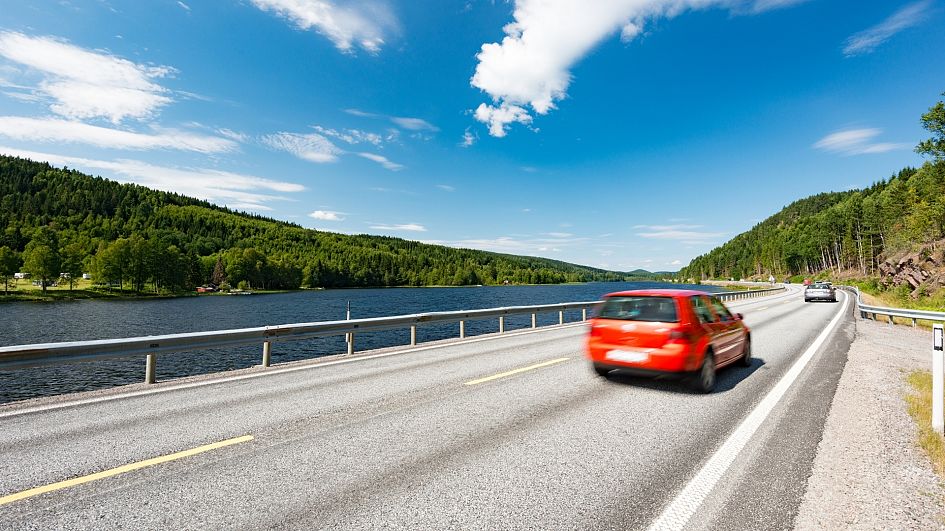
Google will soon use its popular Maps app to direct drivers along more eco-friendly routes to reduce the carbon footprint of car journeys.
The Alphabet Inc. owned tech giant announced this week that it would be implementing AI-powered improvements to Google Maps in order to help combat climate change.
Transport accounts for around one-fifth of global carbon dioxide (CO2) emissions worldwide, with road travel accounting for three-quarters of this.
The improvements include live information about air quality for drivers, as well as greener routes based on traffic. The new model is built to optimise lower fuel consumption, using insights from the U.S. Department of Energy’s National Renewable Energy Lab.
With a new weather layer function, you can see current and forecasted temperature conditions in your area and an air quality layer shows you how healthy (or unhealthy) the air is. This information would be especially helpful if you were in a smoggy or fire-prone area, for example. The weather layer will be available globally and the air quality layer will launch in Australia, India, and the U.S., with more countries to come.
Maps app users will also be able to compare car, bike, public transport and other travel options in one place without having to toggle between tabs.
It’s all part of the commitment Google made in September 2020 to help one billion of its users take action to reduce their environmental footprint.
Will the eco-friendly routes be the fastest too?
With speed as a top priority for most maps users, Google has stated that the new eco-friendly routes will only be used as a default when they have approximately the same ETA as the fastest routes.
“In cases where the eco-friendly route could significantly increase your ETA, we’ll let you compare the relative CO2 impact between routes so you can choose,” says Dane Glasgow, VP of Product, Google Maps, in a statement.
Users can choose to opt out, but Google plans to make eco-friendly routes match those which take the least amount of time, to encourage us to stick with the greener options.
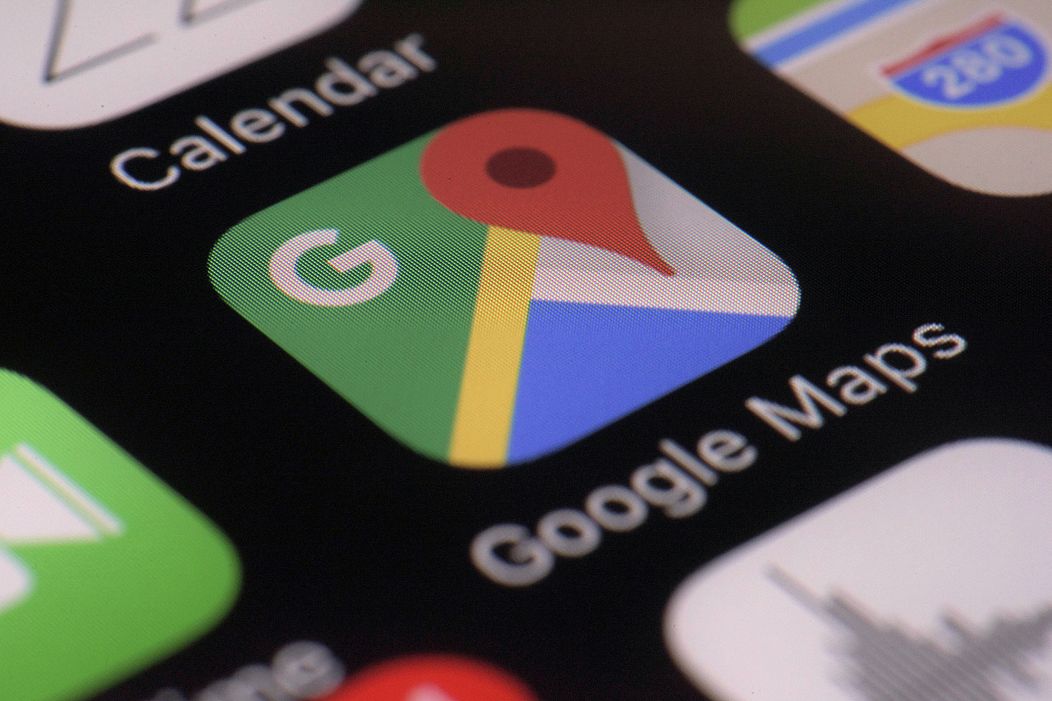
Google MapsAP/Patrick Sison
What about avoiding pollution?
Another function aims to help drivers better understand the pollution levels surrounding them. Alerts will be sent out when you are in low emission zones, which exist in cities all over the world from Amsterdam to Jakarta. They restrict polluting vehicles such as certain diesel cars to help keep the air clean.
You can see if your vehicle is allowed in the area, choose an alternative mode of transportation, or take another route.
Low emission zone alerts launch this June in Germany, the Netherlands, France, Spain, and the UK on Android and iOS.
What are the best cities for eco-friendly transport in Europe?
Most European cities are starting to make headway in green technological initiatives and are transforming urban spaces to reduce carbon emissions.
But which cities are making a difference and what are they doing to make mobility greener?
As of 2021, solar-panelled bus stops are transforming the city of Rzeszów, Poland, while the first hydrogen powered buses were launched in London, UK, and a switch from diesel to electric buses is taking place in Copenhagen, Denmark.
/* src.: https://www.euronews.com/living/2021...-carbon-impact

 Puck Futin
Puck Futin
-
04-03-2021, 08:45 PM #1279
France sees further rise in COVID-19 intensive care patients
PARIS (Reuters) - France reported on Saturday that 5,273 people were in intensive care units (ICU) for COVID-19, a rise of 19 from the previous day, as the country entered its third national lockdown to help combat the pandemic.
The government had been trying to keep the lid on new COVID cases with curfews and regional measures but from Saturday, and for the next four weeks, schools and non-essential businesses across the country will remain shut.
The rise in ICU patients on Saturday followed a much bigger jump the day before - the highest in five months, at 145. President Emmanuel Macron has pledged more hospital beds to care for critically ill COVID-19 patients.
Macron had hoped to steer France out of the pandemic without having to impose a third national lockdown that would further batter an economy still reeling from last year’s slump.
But new strains of the virus have swept across France and much of Europe, amid a slower rollout of anti-COVID vaccines in the European Union than in some countries including Britain and the United States.
/*src.: https://www.reuters.com/article/us-h...-idUSKBN2BQ0M4

 Puck Futin
Puck Futin
-
04-03-2021, 08:48 PM #1280
UK says 5 million get second shot as COVID daily deaths fall to 10
LONDON (Reuters) -Britain reported 10 deaths from COVID-19 within 28 days of a positive test on Saturday, the lowest daily figure since early September, as its vaccine rollout reached another milestone.
Official data also showed 31,301,267 people had received their first shot of a COVID-19 vaccine, with five million now having had both doses in what is the fastest rollout in Europe.
“Our spectacular vaccination programme has now delivered over five million second doses, giving those most vulnerable to COVID - including half of all those aged over 80 - the best possible protection,” health minister Matt Hancock said in a statement.
Britain remains on track to hit the government’s target of offering a vaccine shot to all over-50s by mid-April and all adults by the end of July, the government said
The latest data also showed there were 3,423 new cases, a slight rise from 3,402 reported the day before, though unlike countries such as France and Germany which are battling a third wave of the coronavirus, infections in Britain have been steadily falling.
Strict lockdown measures in England began to be eased on March 29 and Prime Minister Boris Johnson is expected to update the country with further details about lifting restrictions on Monday, including whether outdoor hospitality can reopen on April 12 as planned.
/* src.: https://www.reuters.com/article/us-h...-idUSKBN2BQ0FP

 Puck Futin
Puck Futin






 Reply With Quote
Reply With Quote
